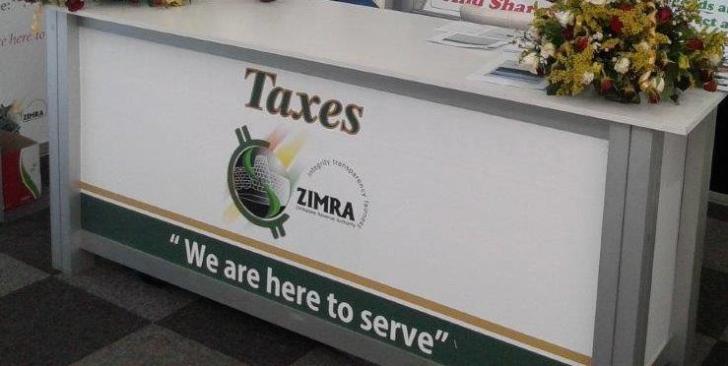News / National
Zimra mulls debt write-offs
30 Sep 2018 at 19:32hrs |
1102 Views

THE Zimbabwe Revenue Authority (Zimra) says it is mulling several debt management strategies including write-offs following recent lapse of a tax moratorium.
Highlighting tax defaults had continued rising in the first seven months of the year, Zimra said it was moving to put corrective measures in place, taking into account that Zimbabwean companies were operating under a difficult environment.
"Strategies to improve the revenue head's performance include; tax audits that are both corrective and deterrent aimed at encouraging voluntary compliance and increased taxpayer education.
"There is also need for debt management strategies including write offs of uncollectable debt and waiver of penalties and interest," the authority said in a statement accompanying its July monthly performance.
This comes as the authority's July collections remained on a positive trajectory as gross collections of $406,13 million exceeded the target of $336,20 million by 20,80 percent.
Zimbabwe's tax collecting agency has been issuing perennial moratoriums since 2015 in the wake of economic challenges that have affected local companies.
The tax collecting agency issued yet another tax amnesty on outstanding taxes that were accrued prior to December 1, 2017 beginning of year, which closed on June 30, 2018.
In 2015, ZIMRA issued a tax amnesty for defaulting corporate clients who for the most part did not take advantage of the provision. The Zimra-granted amnesty period lapsed in March 2016; with ZIMRA calling for tax defaulters to negotiate for payment plans so obligations could be met.
The initial provision granted a limited tax amnesty for a period of six months, with effect from October 1, 2014 and in respect to any non-compliance which occurred during the period beginning February 1, 2009 to September 30, 2014, according to Zimra.
Government is also considering a moratorium on tax arrears owed by companies that benefited from debt assumption by the Zimbabwe Asset Management Corporation as turnaround efforts by some of the companies were affected by the adverse macroeconomic environment, exacerbated by significantly high tax arrears to Zimra.
ZIMRA has previously descended on companies defaulting on their tax obligations, imposing garnishee orders on their bank accounts. Of these defaulting companies, over ten have dragged the taxman to the Fiscal Court of Appeal over the orders.
Despite some companies voluntarily disclosing their arrears to the tax collector and proposing payment plans, they were not spared the garnishee orders.
Highlighting tax defaults had continued rising in the first seven months of the year, Zimra said it was moving to put corrective measures in place, taking into account that Zimbabwean companies were operating under a difficult environment.
"Strategies to improve the revenue head's performance include; tax audits that are both corrective and deterrent aimed at encouraging voluntary compliance and increased taxpayer education.
"There is also need for debt management strategies including write offs of uncollectable debt and waiver of penalties and interest," the authority said in a statement accompanying its July monthly performance.
This comes as the authority's July collections remained on a positive trajectory as gross collections of $406,13 million exceeded the target of $336,20 million by 20,80 percent.
Zimbabwe's tax collecting agency has been issuing perennial moratoriums since 2015 in the wake of economic challenges that have affected local companies.
In 2015, ZIMRA issued a tax amnesty for defaulting corporate clients who for the most part did not take advantage of the provision. The Zimra-granted amnesty period lapsed in March 2016; with ZIMRA calling for tax defaulters to negotiate for payment plans so obligations could be met.
The initial provision granted a limited tax amnesty for a period of six months, with effect from October 1, 2014 and in respect to any non-compliance which occurred during the period beginning February 1, 2009 to September 30, 2014, according to Zimra.
Government is also considering a moratorium on tax arrears owed by companies that benefited from debt assumption by the Zimbabwe Asset Management Corporation as turnaround efforts by some of the companies were affected by the adverse macroeconomic environment, exacerbated by significantly high tax arrears to Zimra.
ZIMRA has previously descended on companies defaulting on their tax obligations, imposing garnishee orders on their bank accounts. Of these defaulting companies, over ten have dragged the taxman to the Fiscal Court of Appeal over the orders.
Despite some companies voluntarily disclosing their arrears to the tax collector and proposing payment plans, they were not spared the garnishee orders.
Source - fingaz
Join the discussion
Loading comments…



































